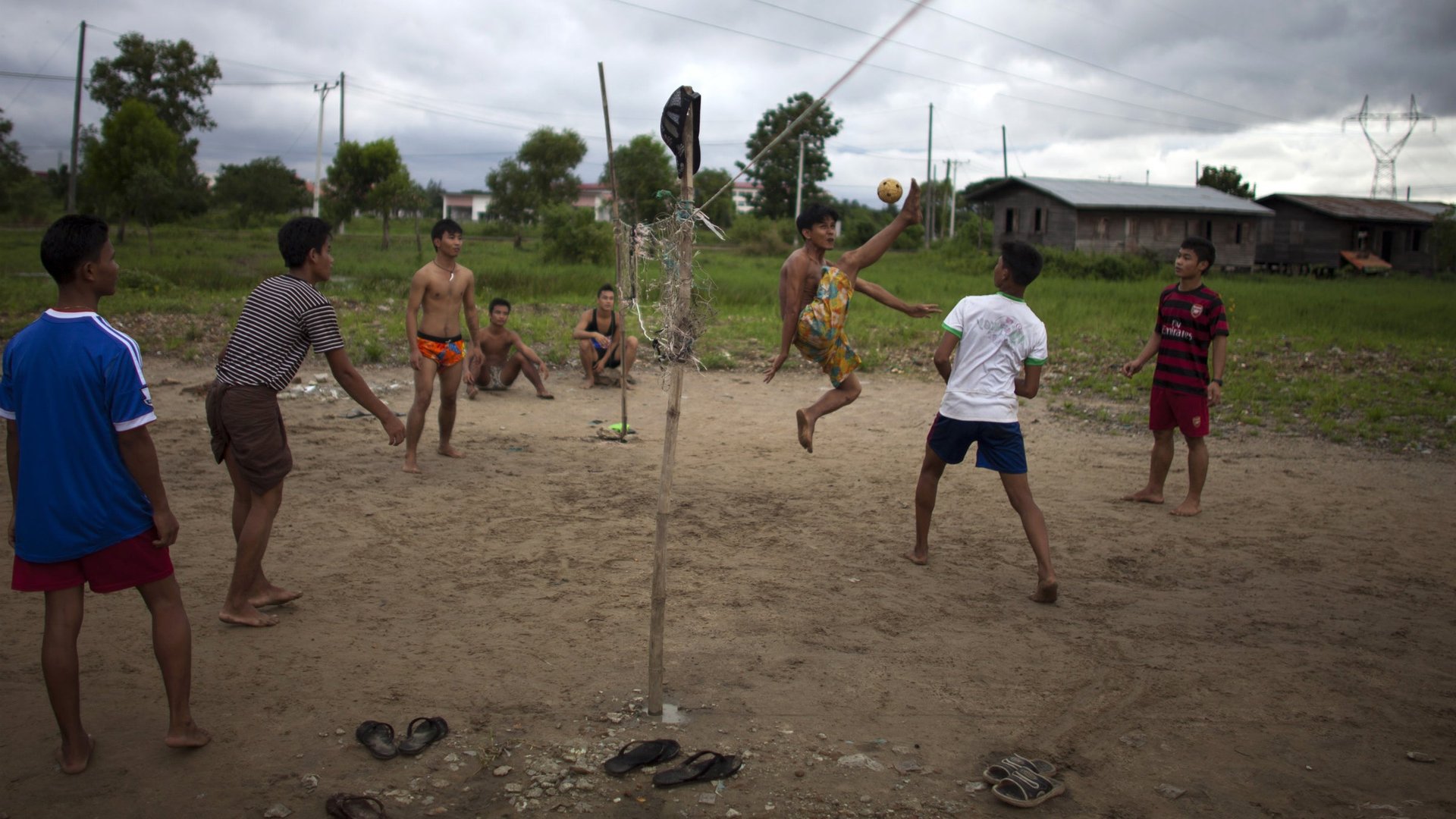Burma’s beautiful version of hacky sack is driving its neighbors nuts
The biennial South East Asia (SEA) games aren’t due to begin until Dec. 11. But the trash talking has already started.


The biennial South East Asia (SEA) games aren’t due to begin until Dec. 11. But the trash talking has already started.
The head of Philippine Sports Commission is vowing to send an undersized protest delegation to the event, arguing that host nation Myanmar (Burma) is stacking the deck in its favor by including only the country’s stronger sports in the games. The country is also increasing the number of medals awarded for certain games. For its part, the Philippines says it won’t attend the 2015 games in Singapore until the participating countries come up with a standardized system for choosing sports. (According to the Manila Bulletin, the host nation currently has the right to name the sports under SEA rules.)
In January, Myanmar said it would be axing a number of sports from the games, including tennis, table tennis, gymnastics, badminton and water polo. Myanmar also added events to the roster, which its rivals say play to the host nation’s advantages. They include bodybuilding, chess, vovinam—a martial art developed in Vietnam—and kempo.
In addition, the country introduced eight gold medals in various categories for chinlone, an ancient sport that virtually no other nation plays. It’s also a game that prioritizes aesthetics over athletics, which some sport lovers have criticized. In chinlone, half a dozen players continually pass a small rattan ball to one another using their feet, heads, knees and chests—much like the game of Western game of footbag or hacky sack. The focus of the sport in Myanmar isn’t winning or losing, but rather helping out your teammates, keeping the ball aloft and performing the moves—which have specific names, shapes and techniques—beautifully. Here’s what it looks like:
Naturally, Myanmar wants to make a good showing. The SEA games will be the first major event the country has hosted since its military junta transferred power to a civilian government in 2011. (It also hosted in 1961 and 1969.)
There is precedent for eccentric additions. When the Philippines hosted the games in 2005, they added arnis, a Filipino martial art involving rattan cane fighting. The country won three golds.